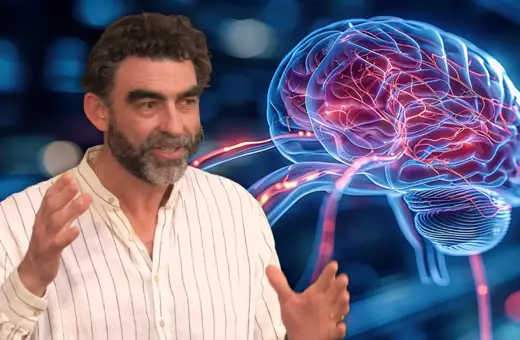In Sincerity and Authenticity (1972) liberal critic Lionel Trilling distinguished between two particular ways of being in the modern world. Being ‘sincere’ (from Latin sincerus, of things, ‘whole, clean, pure, uninjured, unmixed’), ‘true to oneself’ by not ‘dissembling’, becomes an ideal during the early emergence of bourgeois individualism. Its new significance coincides with the increase in social mobility, mobility which also offered more chances for pretending to be what one wasn’t. Shakespeare’s plays often deal with this issue. However, being true to oneself by not pretending to be other than one’s social role dictates subsequently often comes to be seen as merely a kind of conformism that precisely lacks ‘authenticity’. This demands doing things on one’s own authority, which can be seen in terms of being ‘author of oneself’. Diderot’s Rameau’s Nephew (1761), a dialogue with an eccentric man who is able to play character roles at will but who cannot stably adhere to any role for himself, explores the problems associated with self-authorship, and Hegel quotes the text in the Phenomenology of Spirit when explicating modern forms of consciousness.
Authenticity, then, demands truth to oneself of a different order from sincerity. Trilling dramatises this by reference to Joseph Conrad’s Heart of Darkness, where the atrocities committed by Kurtz (which are based on the genocide committed by the Belgians in the Congo in the 19th century) are seen as linked to his plumbing the depths of what he is capable of: being ‘true to oneself’ here leads to sheer horror.
The core difficulty here was expressed by German philosopher F.W.J. Schelling in the 1830’s, where the reference to ‘charm’ could be replaced by either ‘sincerity’ or ‘authenticity’:
There are certain moral and other qualities that one only has precisely to the extent that one does not have them, or, as the German language splendidly expresses it, to the extent to which one does not put on (sich anzieht) those qualities. E.g., true charm is only possible precisely if it does not know about itself, whereas a person who knows of his charm, who puts it on, immediately stops being charming, and if he conducts himself as being charming will instead become the opposite (F.W.J. Schelling, On the History of Modern Philosophy, (trans. A. Bowie, Cambridge UP, 1994).
This passage is actually from a metaphysical argument on the cosmic scale, concerning how the world becomes intelligible at all by taking on determinate forms. The idea is that being takes on attributes by splitting into subjective and objective, and the human issue of self-objectification is seen as inherent in the world as a whole: ‘But the subject cannot grasp itself as what it Is, for precisely in attracting itself (im sich Anziehen) it becomes an other, this is the basic contradiction, we can say the misfortune, in all being - for either it leaves itself, then it is as nothing, or it attracts itself, then it is an other and not identical with itself’ (ibid.).
As soon as there is a division in the self, of the kind generated by seeking self-knowledge, attributes like authenticity become a problem. The idea of anyone claiming ‘I am an authentic person’ involves a kind of self-observation that destroys what it seeks to affirm. This situation poses important questions about knowledge. If authenticity is destroyed by the subject thinking it knows that it is authentic, there seem to be ways of being which may be valuable because they transcend our ability to know them. As we shall see in a moment, this idea may help explain why art takes on new significance in modernity.



















Join the conversation